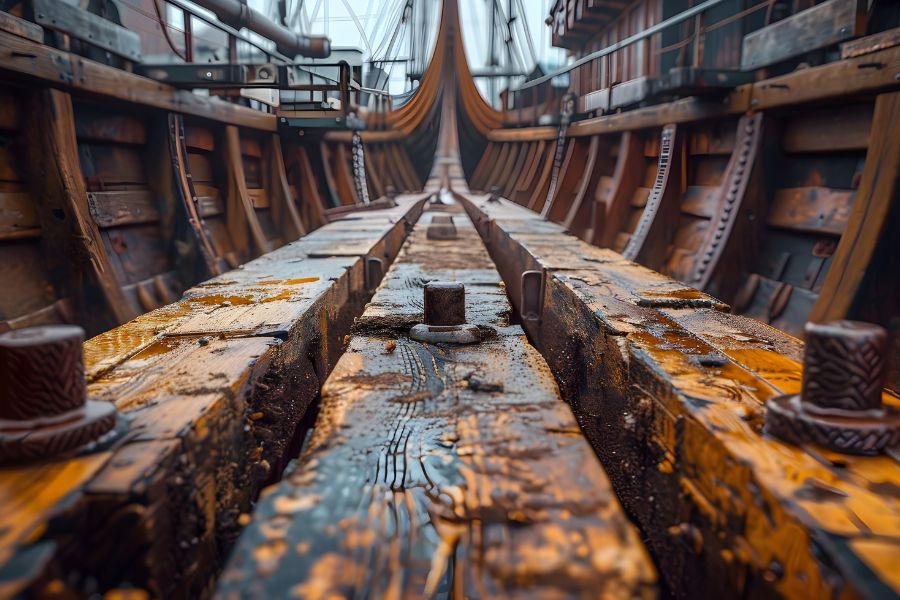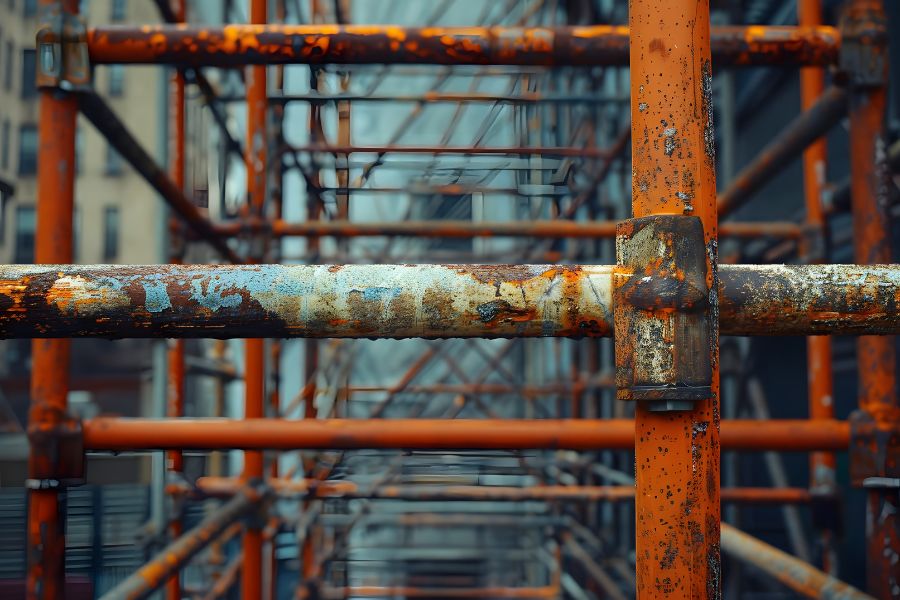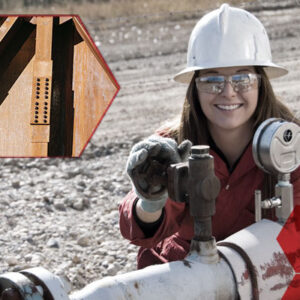7 Key Benefits of Corrosion Protection in Infrastructure
Corrosion is a natural process that affects metals and other materials, causing them to deteriorate when exposed to environmental factors like moisture, oxygen, and chemicals. In the world of infrastructure, corrosion can be a silent but destructive force, weakening the integrity of bridges, buildings, pipelines, and other essential structures. The costs and risks associated with corrosion can be massive, leading to safety hazards, frequent repairs, and even structural failures.
However, the benefits of corrosion protection in infrastructure are immense. By taking steps to prevent corrosion, we can not only extend the life of structures but also save money, enhance safety, and improve environmental sustainability. In this article, we will explore the seven key benefits of corrosion protection in infrastructure and how it plays a crucial role in ensuring the longevity and efficiency of critical structures.
Increases Longevity of Structures
One of the primary benefits of corrosion protection is its ability to significantly increase the lifespan of structures. Infrastructure such as bridges, pipelines, and industrial plants are often made from materials like steel and concrete, which are vulnerable to corrosion when exposed to environmental elements. Without protection, these materials can degrade over time, leading to cracks, leaks, and structural weakness.
Corrosion protection methods, such as protective coatings, cathodic protection, and corrosion inhibitors, create a barrier that prevents these materials from coming into direct contact with corrosive elements. This, in turn, prolongs the life of the infrastructure. For instance, a bridge with proper corrosion protection can last several decades longer than an unprotected one, reducing the need for premature repairs or replacement.
Reduces Maintenance Costs
Another key benefit of corrosion protection is the reduction of maintenance costs. Corrosion, once it begins, requires ongoing repairs and inspections to manage the damage. These repairs can be expensive, especially for large-scale infrastructure projects like highways, water pipelines, or oil rigs.
By implementing corrosion protection during the construction phase, infrastructure owners can significantly reduce the need for costly repairs down the road. For example, a pipeline coated with corrosion-resistant materials will require fewer repairs and inspections than one left unprotected. The long-term savings on maintenance make corrosion protection a cost-effective investment that pays off over the lifespan of the structure.
Enhances Safety
Safety is a critical concern in infrastructure, and corrosion can pose serious risks to both people and property. Corroded structures are weaker and more prone to failure. For example, a corroded bridge could collapse, or a rusted pipeline could rupture, leading to dangerous spills or accidents.
Corrosion protection helps maintain the structural integrity of infrastructure, reducing the likelihood of such accidents. By preventing the weakening of materials, protective coatings, and other corrosion-resistant solutions ensure that infrastructure remains strong and safe. In industries such as oil and gas, where safety is paramount, corrosion protection is not just a financial consideration but also a necessary measure to protect human lives.
Improves Structural Performance
Corrosion not only weakens the materials used in infrastructure but also affects the overall performance of the structure. For example, a corroded pipeline may suffer from reduced flow efficiency, or a bridge may lose its load-bearing capacity over time. These performance issues can disrupt the function of essential infrastructure, leading to operational inefficiencies and higher costs.
One of the key benefits of corrosion protection in infrastructure is the ability to maintain optimal performance. By preserving the integrity of materials, corrosion protection ensures that pipelines, bridges, and buildings continue to perform their intended functions effectively. This results in fewer disruptions and a more reliable infrastructure network, whether it’s in transportation, energy, or water distribution.
Saves Money in the Long Run
While implementing corrosion protection may seem like an additional cost upfront, it is an investment that saves money in the long run. Without corrosion protection, infrastructure is far more likely to suffer from degradation, leading to frequent repairs, replacements, and increased maintenance costs.
Corrosion protection solutions, such as coatings, inhibitors, and cathodic protection, help extend the life of infrastructure and reduce the need for expensive repairs. By preventing corrosion, infrastructure owners can avoid the financial burden of emergency repairs or, in extreme cases, the complete replacement of a structure. Over the long term, corrosion protection results in significant cost savings, making it a smart financial decision for infrastructure projects.
Boosts Environmental Sustainability
In today’s world, environmental sustainability is a critical concern in infrastructure development. Corrosion has an environmental impact, as the deterioration of materials often requires the consumption of additional resources for repairs or replacement. For example, replacing corroded steel in a bridge requires new raw materials, which involves mining, manufacturing, and transportation—all activities that have a carbon footprint.
One of the lesser-known benefits of corrosion protection in infrastructure is its contribution to environmental sustainability. By extending the lifespan of structures, corrosion protection reduces the need for frequent replacements and repairs, thereby conserving natural resources and reducing waste. Additionally, some corrosion protection methods, such as eco-friendly coatings, are designed to minimize environmental impact while providing effective protection against corrosion.
Ensures Compliance with Industry Standards
In many industries, including construction, oil and gas, and transportation, there are strict regulatory standards that govern the safety and durability of infrastructure. These standards often require that structures be designed and maintained to withstand environmental stresses, including corrosion. Failure to meet these standards can result in fines, legal penalties, or the shutdown of projects.
One of the important benefits of corrosion protection in infrastructure is that it helps ensure compliance with industry standards and regulations. By implementing corrosion protection solutions, infrastructure owners can meet or exceed the required safety and durability guidelines, reducing the risk of legal and financial repercussions. Moreover, compliance with standards ensures that projects are built to last, providing peace of mind for both investors and the public.
FAQs: Frequently Asked Questions
What is corrosion protection in infrastructure?
Corrosion protection involves applying methods like coatings, inhibitors, and cathodic protection to prevent the degradation of materials used in infrastructure, such as steel and concrete, due to environmental factors like moisture and chemicals.
How does corrosion protection increase the lifespan of infrastructure?
Corrosion protection prevents materials from coming into contact with corrosive elements, reducing degradation and extending the longevity of structures like bridges and pipelines by several decades.
Why is corrosion protection important for safety?
Corrosion weakens structures, making them prone to failure. By maintaining material integrity, corrosion protection reduces the risk of accidents, such as pipeline ruptures or bridge collapses, ensuring safety.
Can corrosion protection improve the performance of infrastructure?
Yes, by preserving the integrity of materials, corrosion protection helps maintain the structural performance of infrastructure, ensuring optimal functionality and minimizing operational disruptions.
Is corrosion protection beneficial for the environment?
Yes, it promotes environmental sustainability by reducing the need for frequent repairs or replacements, conserving natural resources, and lowering the carbon footprint of infrastructure maintenance.
Closing Insights
At CORCON – Institute of Corrosion, we understand the profound and wide-ranging benefits of corrosion protection in infrastructure. From extending the lifespan of vital structures to reducing maintenance costs and enhancing safety, corrosion protection is not just a technical requirement—it is a cornerstone of sustainable and modern infrastructure development. By addressing and mitigating the damaging effects of corrosion, infrastructure professionals can save significant costs, improve overall performance, and contribute to environmental sustainability.
Whether you’re involved in the construction of a bridge, pipeline, or industrial facility, corrosion protection is essential for ensuring the safety, reliability, and efficiency of these critical assets for years to come. At CORCON, we provide comprehensive training and courses to help professionals master corrosion protection strategies that can safeguard infrastructure from early deterioration and costly failures.
Corrosion prevention is more than just protecting materials—it’s about preserving the future of our infrastructure. If you’re planning a new project or seeking to extend the life of an existing one, we invite you to explore our specialized corrosion protection training. Equip yourself with the knowledge to implement effective solutions that enhance longevity, boost performance, and secure long-term cost savings for your infrastructure.
Image Reference: Freepik
Disclaimer: All trademarks, logos, and brand names are the property of their respective owners. All company, product, and service names used in this website are for identification purposes only. Use of these names, trademarks, and brands does not imply endorsement.




